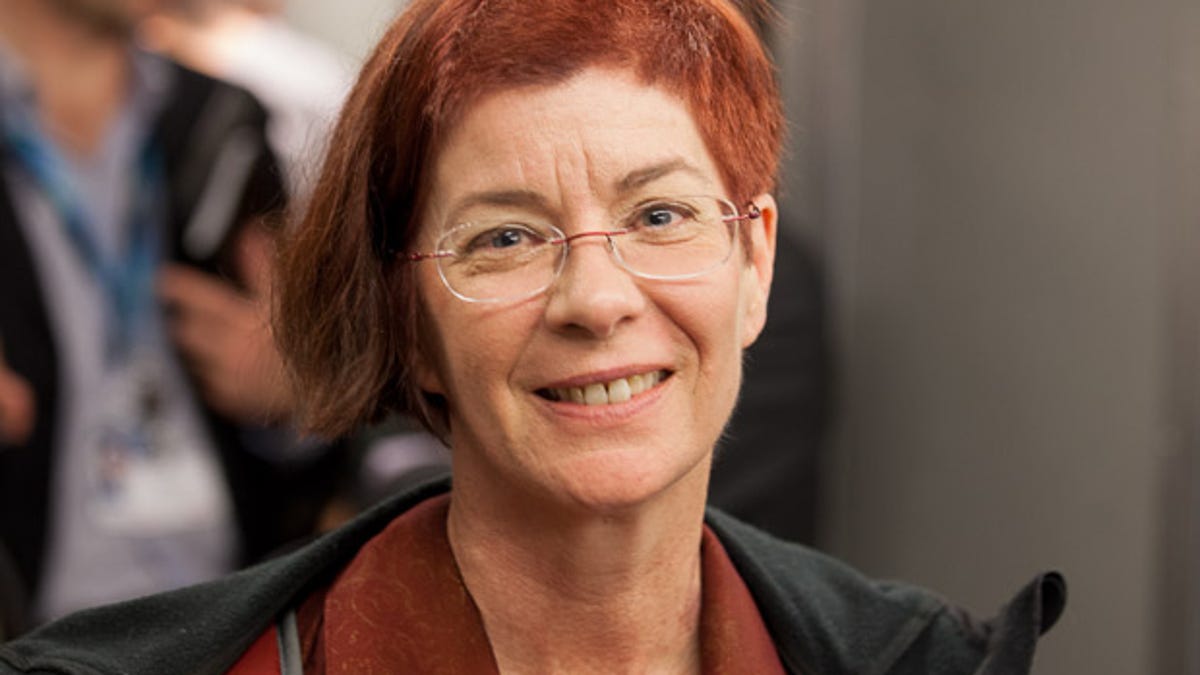Mozilla: No Firefox phones in US
Mozilla's Mitchell Baker stresses Firefox OS's appeal to developing countries -- and (pay attention, Apple and Google) the importance of price.

SAN FRANCISCO -- If you're a Firefox OS fan and you live in the United States, you're going to have to wait a bit longer to get your Firefox phone.
Earlier this year, Mozilla's then-CEO Gary Kovacs said at Mobile World Congress that Firefox OS phones would be coming to Sprint in 2014. At the OpenMobile Summit here Wednesday morning, Mozilla Executive Chair Mitchell Baker appeared to backtrack on that comment.
"Currently, there are no plans to launch in the US," Baker told CNET's editor-in-chief, Paul Sloan, during a fireside-style conversation in front of an audience of around 100 people. She then clarified that Mozilla will have developer phones for the US market, which it has already sold more than 1,300 of on eBay.
After the on-stage conversation, Baker told CNET that there are no changes in Mozilla's plans from what Kovacs announced.
Mozilla's vice president of mobile, Andreas Gal, told CNET in a statement that while Mozilla is "actively exploring" operator and manufacturer partnerships for the US market, the ZTE Open on eBay remains its only US offering so far.
In talking about Firefox OS, Baker stressed the importance of the company's strategy to market to developing countries. Something that the Apple and Google duopoly has missed, she said, is the importance of price.
"For most of the world, price is really important. But for us, a $500 phone, how many of us have one," she asked rhetorically. "How many cents you can shave off the bottom of the phone is the driving factor," she said.
Baker also emphasized that her belief, and the belief of Mozilla, is not that is there room in the mobile world for more than just Apple and Google, but that the very concept of mobile is "an anomaly."
Mobile, she said, "means a particular operating system, an app model, it means essentially Apple and Google. But if you think of [smartphones] as computers," she said, and not as phones, "you get a sense of their potential."
This, she said, is merging with the coming world of massive data, where most objects, such as the chair you're sitting on or the room you're in, are Internet-enabled.
"Some experiences will look better on a big form factor. So, we want an experience that's seamlessly interoperable with the data," she said.
When questioned about Do Not Track, the struggling initiative to introduce a modicum of user control over how companies follow you around online, Baker was quick to defend it as "not a failure."
"Twelve percent of all Firefox users have said, 'we do not want to be tracked.' It's higher on mobile," at least by percentage, she said. Firefox for Android has yet to crack even one percent of mobile browser usage.
The mobile ad industry is in a period of innovation, she said, in large part because tracking cookies don't really work on mobile devices. Also, she noted, "it's a bad place to be where your business is creepy to a lot of people."
She concluded that Mozilla's role in getting to this future world hasn't changed from when Firefox was first introduced.
"When we made Firefox for the desktop, conventional wisdom was that we didn't need it. The browser didn't matter, the Web was the way it was," Baker said. "It was very similar to [mobile] today."
Mozilla's challenge, then, is proving that there's another way to do things. "Why we have to show the consumer base a different model is not a big deal to us. It's part of our job," she said.
Update, 5:49 p.m. PT: Adds comment from Mozilla.

